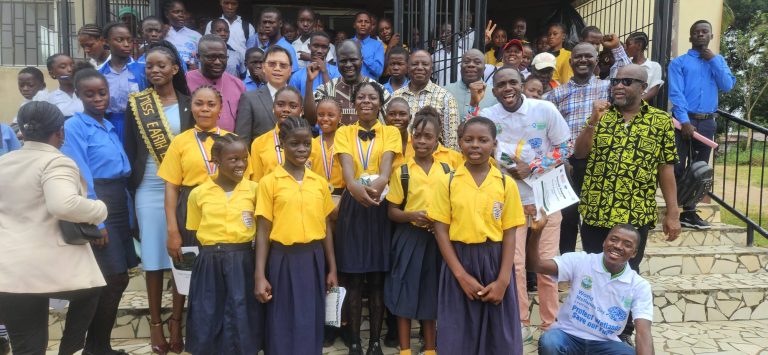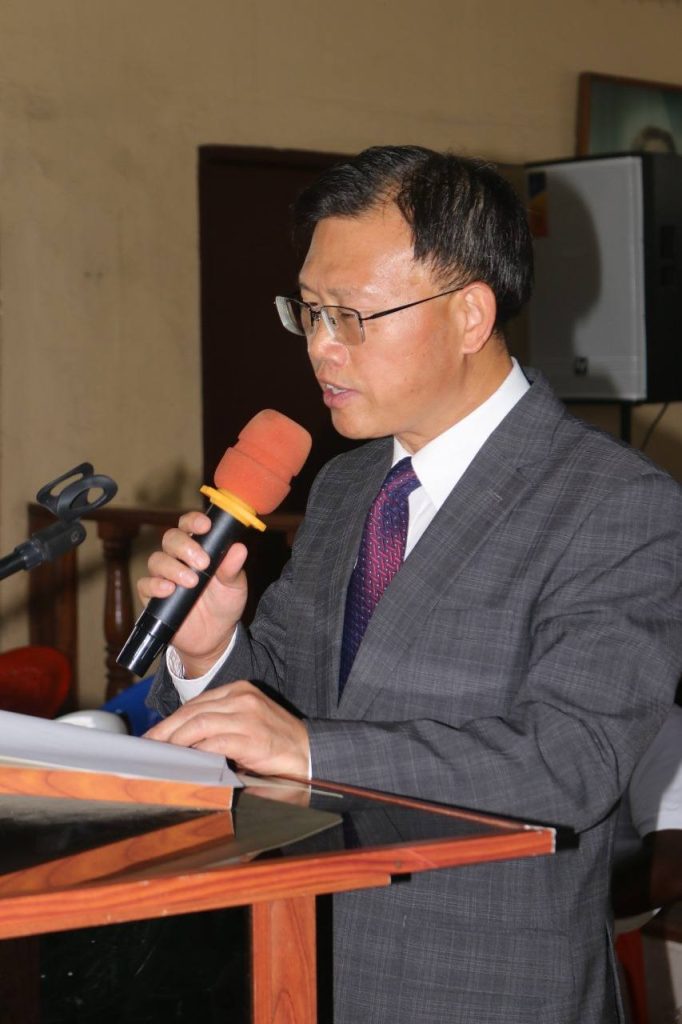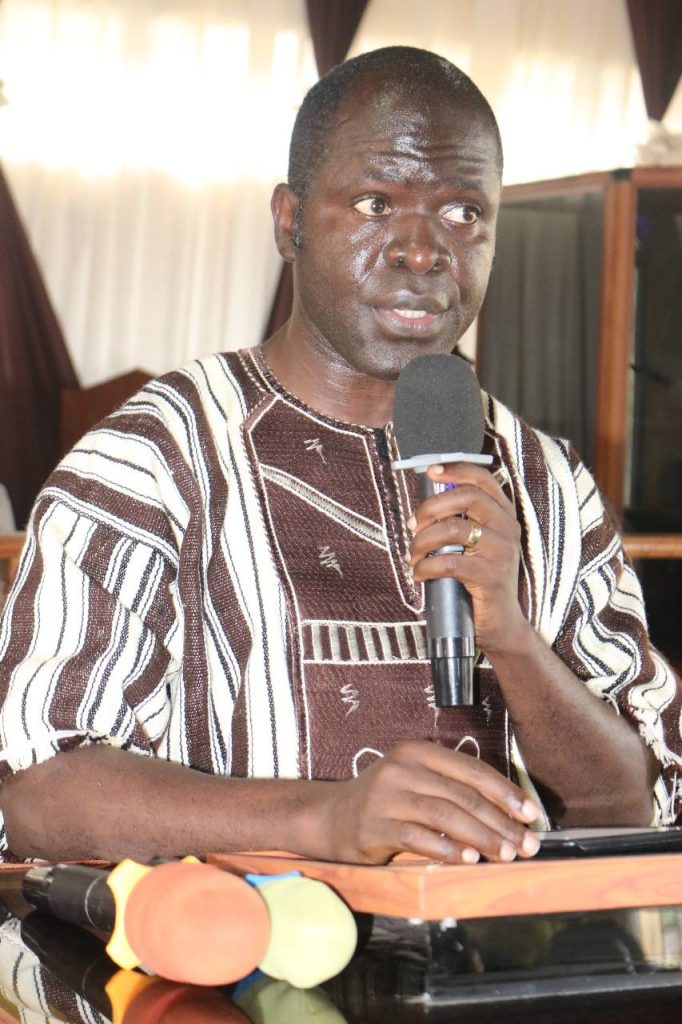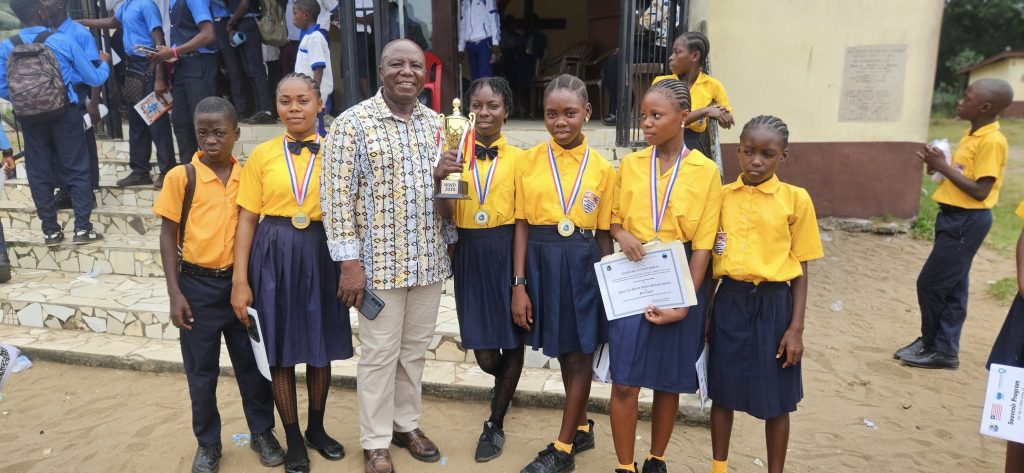Posts Categories
Latest Posts

(Marshall, Margibi County-February 3, 2025)_The Environmental Protection Agency (EPA) of Liberia has celebrated World Wetlands Day 2025 in Marshall City, Margibi County, under the theme “Protecting Wetlands for Our Common Future.” The event aimed to raise awareness about the critical role wetlands play in environmental conservation and economic activities such as fishing, farming, and tourism.
Liberia is a signatory to the Ramsar Convention on Wetlands, an international treaty adopted in 1971 in Ramsar, Iran, to promote the conservation and sustainable use of wetlands. The country joined the convention in 2003, committing to protect its wetlands and ensure their wise use. Liberia currently has five designated Ramsar sites: Marshall Wetland in Margibi County, Mesurado Wetland in Montserrado County, Lake Piso Wetland in Grand Cape Mount County, Kpatawee Wetland in Bong County, and Gbendi Wetland in Nimba County.
In recognition of the day’s importance, President Joseph Nyuma Boakai issued a Presidential Proclamation, declaring Monday, February 3, 2025, as World Wetlands Day in Liberia. The proclamation emphasized the significance of wetlands in protecting coastlines, mitigating flooding, storing carbon to regulate climate change, and sustaining biodiversity.
The program brought together government officials, representatives of non-governmental organizations, foreign diplomats, and local community members.
Providing an overview of the occasion, Mr. Levi Z. Piah, the Focal Point of the Ramsar Convention in Liberia, explained the historical background of the convention. He highlighted that Liberia, as a member, has an obligation to protect its wetlands and implement policies that prevent degradation.
Piah raised concerns over the continuous destruction of wetlands in Liberia, particularly in Margibi County, where unregulated construction, illegal waste disposal, and deforestation threaten these critical ecosystems. He stressed the need for urgent action, noting that wetlands are essential for sustainable development, biodiversity conservation, and climate resilience.
As a guest speaker, the Ambassador of the People’s Republic of China, H.E. Yin Chengwu, reaffirmed his country’s commitment to environmental protection and wetlands conservation. He emphasized that wetlands play a vital role in ecological balance, support livelihoods, and mitigate climate change impacts.

Ambassador Yin highlighted China’s long-standing partnership with Liberia in various sectors, including agriculture, infrastructure, and environmental protection. He pledged China’s support for wetlands restoration, conservation initiatives, and capacity-building programs in Liberia.
“If people care for nature, nature will surely reward them in return,” he said, emphasizing China’s success in wetland restoration and its International Mangrove Centre (IMC), established in 2022 to promote global mangrove conservation.
Delivering special remarks, EPA Executive Director Dr. Emmanuel K. Urey Yarkpawolo underscored the importance of wetlands and Liberia’s commitment to the Ramsar Convention. He noted that wetlands play a crucial role in climate regulation, biodiversity conservation, and economic activities, yet they continue to face severe threats from human activities.
Dr. Yarkpawolo highlighted the economic value of wetlands, particularly mangroves, which provide coastal protection worth an estimated US $95 million per year. He noted that mangrove forests, despite covering only 0.1 percent of the planet’s surface, store up to ten times more carbon per hectare than terrestrial forests, making them a powerful tool in the fight against climate change.
He warned that Liberia has already lost 26 percent of its mangroves between 2000 and 2021, with unregulated construction, sand mining, and pollution as key drivers of destruction.
“If wetlands have such enormous benefits for our current and future generations, why are we destroying them?” he asked. “People are backfilling wetlands, dumping waste, and engaging in destructive activities that threaten these ecosystems. This has to stop.”
To address these challenges, Dr. Yarkpawolo announced that the EPA is strengthening enforcement mechanisms. He revealed that the agency has issued stop-work orders and restoration orders but faces difficulties due to a lack of arresting powers. To resolve this, the EPA is negotiating a Memorandum of Understanding (MOU) with the Liberia National Police, which would allow law enforcement officers to arrest individuals violating environmental laws.
He also emphasized ongoing efforts to develop Liberia’s carbon market policy, which will enable the country to participate in global carbon trading. “By protecting wetlands, we are making a long-term investment in our common future,” he said.
Dr. Yarkpawolo disclosed that in 2024 alone, the EPA validated 11 environmental regulations, including a wetland protection regulation, a water quality regulation, and a solid waste management policy. These instruments, he said, will enhance the EPA’s ability to protect wetlands and enforce environmental standards.
Additionally, he announced that a draft Executive Order on wetlands conservation has been submitted to President Boakai. The order, if signed, will establish a National Taskforce on Wetlands Protection to halt further degradation and mobilize resources for restoration efforts.
“We must act now to prevent further destruction. If left unchecked, wetlands degradation will drive thousands of Liberians into poverty in the coming years,” he warned.

Dr. Yarkpawolo praised China’s initiative in establishing the International Mangrove Centre (IMC) and noted that Liberia is among the founding members. He revealed that Liberia formally signed the IMC Establishment Agreement in November 2024 and is now developing a roadmap for ratification.
He expressed optimism that Liberia’s partnership with China and other IMC members will enhance efforts to restore and conserve the country’s mangrove ecosystems.
“We look forward to working closely with the Chinese Embassy and other partners to ensure the successful implementation of this agreement,” he said.
Dr. Yarkpawolo urged all Liberians to take responsibility for protecting wetlands. He emphasized that wetlands conservation should not be viewed as a burden but rather as an investment in the country’s future.
“Saving wetlands means saving ourselves. Wetlands are not just victims of destruction; they are our lifeline. Let us all work together to protect them for the benefit of present and future generations,” he stated.
The ceremony concluded with awards presented to participating schools that attended the program. The awards were presented by EPA Deputy Executive Director Hon. Dweh Siehwloh Boley.

